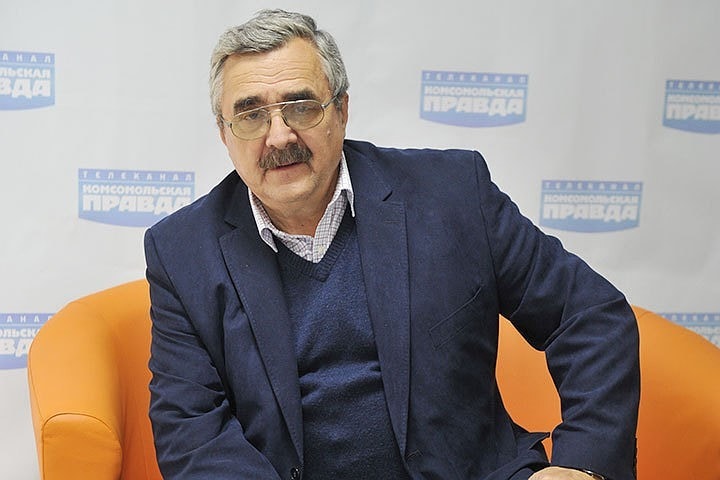It has not been the best of summers for Russia in its own backyard. First came the continuing crisis in Belarus triggered by Aleksander Lukashenko's claim that he was reelected by a landslide. This was followed by the fighting between Armenia and Azerbaijan over Nagorno Karabakh and finally came the overthrow of a pro-Russian leader in Kyrgyzstan. Russia has strategic interests in all three countries. Moskovskii Komsomolets correspondent Arthur Avakov does not believe in coincidences and to back up his hunch interviewed two experts– Alexander Gusev and Vladimir Zharikhin. The two confirmed his theory that Western meddling was behind all these crises. But after dutifully blaming the West for the problems in the post-Soviet space, the two identified a second common denominator: Russia has not been assertive enough in defending its interests and making clear what red lines could not be crossed. If Russia is wary of being labeled an imperialist it should realize that Russia will be called an imperialist no matter what it does.
Avakov's interviews follow below:[1]

Demonstrations in Kyrgyzstan (Source: Rbc.ru)
"For the post-Soviet space, the second half of 2020 became fateful in many respects. Mass protests gripped Belarus after Alexander Lukashenko decided to be re-elected for the sixth time as the country's president. Armenia and Azerbaijan clashed with each other for the second time in a year: first border [clashes], and later in Karabakh, which each of them considers to be their land. And in conclusion, the Kyrgyz managed to liquidate the regime ruling their country in a couple of hours. “MK” checked with experts whether such coincidences are possible."
Alexander Gusev, Director of the Institute for Strategic Planning and Forecasting:
- "It is generally accepted that Western agents of influence do not exist in these countries, but this is completely false. There are many of them, and they have been working there for a very long time. Their task is to cause mayhem and stoke conflicts. Additionally, they are trying to pit a certain part of the population of the post-Soviet republics against Russia. These agents of influence are trying to prove that Moscow is incapacitated, is uninvolved in their lives, and so on. The conclusion drawn from the aforementioned is that it is necessary to get away from the “living spectre” of the Soviet Union, which includes abandoning of the Eurasian Economic Union, the CSTO, and other organizations. Instead, it is recommended to kiss the ring of China, NATO, or someone else.
SUPPORT OUR WORK

"At the same time that the region is sinking into chaos a position of non-interference in the affairs of neighboring countries is popular in Russia. A civil war may start in Kyrgyzstan. Syrian militants were brought to Azerbaijan ... All this needs to be dealt with. In particular, it is necessary to conduct a dialogue with Turkey, because Azerbaijan itself would never have thought of such a thing. And it is important for the Turks that a conflict flares up in the Russian 'underbelly'.
"Russia should not be shy defending its interests. We have military bases and facilities in Armenia, Belarus and Kyrgyzstan. All of them are members of the CSTO. Moscow must declare to the whole world that this is the zone of its national interests, which it will defend at any cost."

Professor Aleksander Gusev (Source: Ria.ru)
Vladimir Zharikhin, Deputy Head of the Institute of CIS Countries:
"Our so-called partners are involved in the outbreak of the crisis in the post-Soviet space. After all, the Democrats and Republicans in the United States agree on only one thing - their negative attitude towards Russia. At the same time, it cannot be said that all these problems are related only to them. Problems have been accumulating for a long time, and the coronavirus crisis has exacerbated them. Some people fell into depression and others - into aggression.
"For example, in Belarus there has long been a problem of Lukashenko's erratic behavior. If he behaved inappropriately towards Russia, why should one be surprised by his decision to not campaign for his sixth re-election. Instead, using purely administrative methods, he tried to paint himself a result higher than that of Russian President Vladimir Putin. Apparently, this was fundamentally important for him. As a result, Lukashenko overstrained the Belarusian people's ample patience and that is what turned out..
"As for the Armenian-Azerbaijani conflict, Moscow has recently taken an inadmissibly passive position. In particular, no one insisted that the parties to the conflict comply with the articles of the Madrid Protocol. [The Kremlin] decided that one day wise leaders will come to power in these countries, who would reach a compromise for a sustainable peace. As a result, they [Moscow] waited for Turkey to enter the region, exploiting Russia’s passivity. Perhaps Ankara acted at the Americans' behest.
"Well, also Kyrgyzstan ... There they have a fashion for overthrowing presidents, and we regarded with equanimity. And then once the country boiled over. We should have strongly advised against imprisoning the former president [ Almazbek Atambayev], justifying it by the argument that it would subsequently boomerang on [President Sooronbai] Jeenbekov himself. But we limited ourselves to generalities.
"Russia’s problem is that it seriously believed in the absence of red lines, zones of influence, and so on. [The Kremlin] they don’t remember about Ukraine, they have come to terms with it. Moscow has been criticized so often for its imperial ambitions that it has forgotten its interests. Of course, we have a responsibility to respect the sovereignty of our neighbors, but we must remind them of our priorities. After all, if we don’t, we will be accused of imperialism anyways.

Vladimir Zharikhin (Source: Saratov.ru)
[1] Mk.ru, October 10, 2020.




